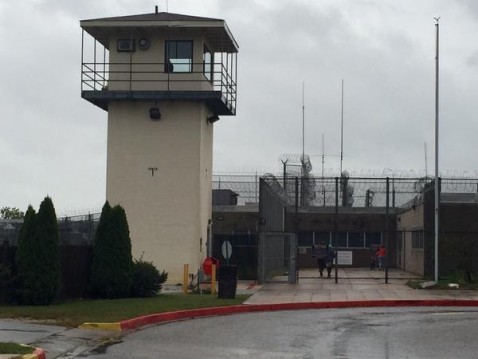WASHINGTON — Congress appears to be moving forward on a bill aimed at helping former prisoners get a second chance in society.
The legislation passed by a voice vote in the House Judiciary Committee on Jan. 12 and is expected to be voted on by the full House, though no date has been set. An identical bill in the Senate was introduced in July and is awaiting action by the Senate Judiciary Committee.
Advocates are hopeful the Senate will follow the House’s example.
“Considering the recent action by the Senate Judiciary Committee on other criminal justice bills, we’re hopeful they’ll support this bill, as did the House Judiciary Committee earlier this month,” said Michael Clark, spokesman for the Council of State Governments Justice Center. “Speaker [Paul] Ryan’s latest comments about criminal justice reform being one of the top issues he’d like to see Congress act on this year also has us keeping our confidence high.”
The House bill, written by Rep. Danny Davis, D-Ill., and Crime, Terrorism, Homeland Security, and Investigations Subcommittee Chairman Jim Sensenbrenner, R-Wis. is known as the “Second Chance Reauthorization Act of 2015.” It reauthorizes and changes the distribution of grant funding to programs aiding ex-prisoners. The original law was enacted in 2008.
The House measure places a new emphasis on ex-prisoners who work with a mentor to help them stay out of prison and focuses funding on programs that deal with those with histories of mental illness or substance abuse. The bill also shifts funding to focus on research on prison education programs and expands funding to include nonprofit organizations.
The legislation is one of seven bills introduced in the House Judiciary Committee as a part of its bipartisan “Criminal Justice Reform Initiative.”
Supporters of the “second chance” bill include Reps. Donna Edwards, D-Fort Washington, Elijah Cummings, D-Baltimore, Chris Van Hollen, D-Kensington, and John Delaney, D-Potomac.
Van Hollen said the bill is an important step in making the justice system more fair by providing the funding to give ex-prisoners the chance to start fresh as they reenter society.
“Reforming our criminal justice system is a pressing national priority,” Van Hollen said. “Part of that effort requires that skills training and career support are available to those who have served time so they are able to reenter their communities with the tools necessary to succeed.”
Cummings has recently taken steps to support prisoners, such as hosting earlier this month a documentary screening and discussion on the topic of reentry and introducing a bill in September aimed at helping ex-prisoners find employment.
“All too often, a criminal record in this country is like a life sentence,” Cummings said in a statement. “Second Chance Act grants support the nonprofits and state and local governments doing crucial work on the ground helping formerly incarcerated individuals become productive, contributing members of their communities.”
“Successful reentry efforts simply would not be possible without them, and we must do all we can to support their work,” the congressman added.
States together spend more than $52 billion annually on corrections, most of which is spent on state prisons. The spending is increasing at such a high rate it falls second only to Medicaid in the states’ budgets, according to a 2011 study by The Pew Charitable Trusts.
The study found that nationwide, more than four in ten offenders return to prison within three years of being released.
The return rate to prison after release in Maryland mirrors this number. According to a report by the Maryland Task Force on Prisoner Reentry, the 2010 recidivism rate in the state within three years of release was 47.8 percent.
Many states have successfully lowered statewide recidivism rates with help from the Second Chance Act funding, according to a report from the National Reentry Resource Center.
More than 100,000 benefited from services such as career training and substance abuse treatment made possible by grants from the current law, according to the House Judiciary Committee.
The Council of State Governments Justice Center received $1.15 trillion in funding by Congress for three programs for fiscal 2016, including the Mentally III Offender Treatment and Crime Reduction Act, the Second Chance Act and the Justice Reinvestment Act.
The Second Chance Act received $68 million in fiscal 2016, while the new legislation would increase that funding to $100 million in each of the next four years.

